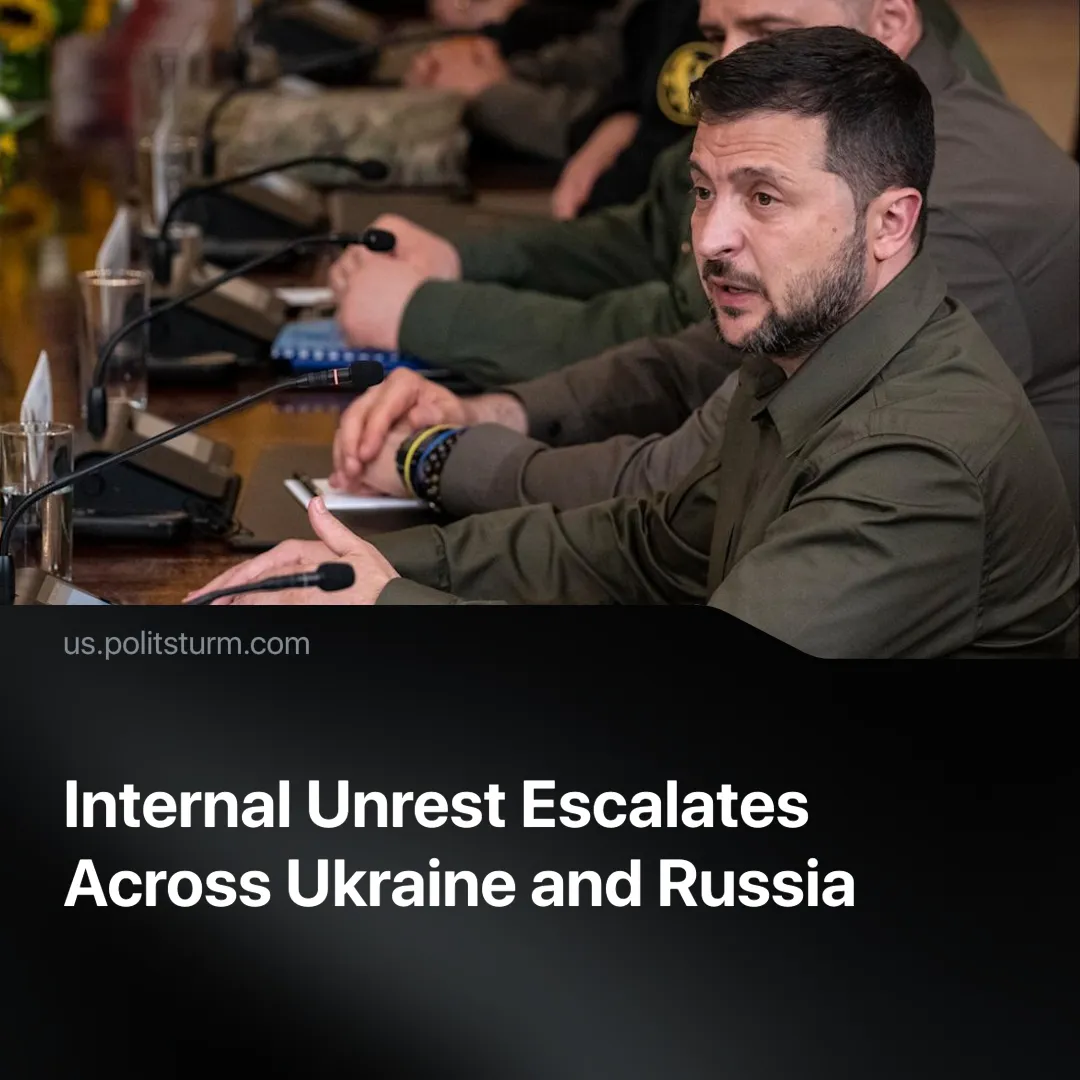Major protests in Ukraine and new repressive laws in Russia show a deepening crisis in both states under the pressures of conflict.
Details. On July 22, 2025, the Ukrainian parliament passed a bill that removed the institutional independence of the National Anti-Corruption Bureau of Ukraine (NABU) and the Specialised Anti-Corruption Prosecutor’s Office (SAPO), instead placing both agencies under the authority of the Prosecutor General, a position appointed by the President.
► This bill triggered widespread protests in major Ukrainian cities, including Kyiv, Odessa, Lviv, Dnipro and others. Thousands of citizens — primarily younger Ukrainians and civil society activists — began the first major protests since the start of the ‘Special Military Operation’ (SMO). They demanded to veto the law and claimed that the anti-corruption system protects the future of Ukraine.
► Ukrainian President Zelensky claimed that this law would reduce “Russian influence” and speed up corruption cases. The EU threatened to freeze financial support unless the law was repealed. Several EU officials, such as Enlargement Commissioner Marta Kos, warned that this move contradicts Ukraine’s intentions to join the EU.
► Meanwhile, in Russia, searching for “extremist” content is going to be prohibited, leading to fines. Attempting to avoid detection with tools like Virtual Private Networks (VPNs) would be an aggravating factor, leading to heavier fines. Advertising and hosting a VPN would also be punished if it gives access to extremist content.
► This extremist content itself includes organisations and figures that oppose the Kremlin (such as those related to Alexey Navalny), the LGBTQ+ movement and tech companies like Meta.
Context. Both measures come amid worsening conditions from the prolonged conflict. Inflation, unaffordable housing, and growing inequality are fuelling discontent in both Ukraine and Russia.
► Ukraine’s ruling class faces pressure from Western creditors, particularly the EU and the US, to keep anti-corruption agencies under foreign oversight. Zelensky’s move to consolidate presidential control threatened this arrangement, and in response, the EU withheld aid.
► Both changes occurred shortly after the US President Trump issued a 50-day ultimatum (recently shortened to 10-12 days) to Russia, calling for an end to the so-called SMO or risk facing secondary tariffs.


